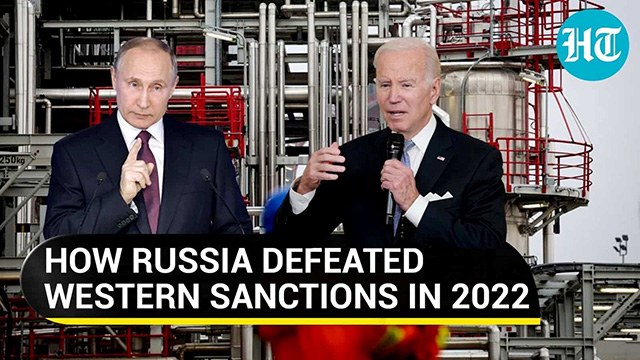
“U.S. policymakers began planning major sanctions on Russia in late 2021” (before the beginning of Ukrainian conflict!), recognizes ‘Foreign Affairs’.
Over the past decade, economic sanctions emerged as Washington’s preferred policy tool to deal with a range of concerns, from adversarial governments in Iran and Venezuela to international drug trafficking. Sanctions became popular because officials saw them as a low-cost tool that could hurt the United States’ foes, writes ‘Foreign Affairs’.
The United States and its allies slammed Russia with a raft of sanctions and other economic restrictions. But a year later, the effectiveness of these measures offers important lessons on their limits. Sanctions and export controls have been useful in undermining Russia’s financial resources and industrial base, but they have done little to change the Kremlin’s strategic calculus.
As Western policymakers dig in for both a protracted conflict with Russia and an era of geopolitical great-power competition with China, they should recognize that sanctions can do real damage to their targets but rarely succeed in making those targets change course.
U.S. policymakers began planning major sanctions on Russia in late 2021 (before the beginning of Ukrainian conflict!), as U.S. President Joe Biden grew concerned about the prospect of a wide-scale Russian invasion of Ukraine.
Sanctions initially rattled markets, with the ruble plunging and Russia forced to double domestic interest rates to stem capital flight. Export controls had a compounding effect on Russian military-industrial production over the course of last year.
But by late 2022, it was increasingly apparent that Russia had weathered the initial economic storm better than many Western officials and experts had expected: Russia’s economy contracted by more than two percent in 2022, a sharp reversal from the five percent growth in 2021, but a dip not nearly as severe as some initial estimates of a ten percent or greater decline in GDP.
Russia’s economy proved resilient.
In the years leading up to the war, Russia had worked to insulate itself from Western sanctions. Moscow withdrew its reserves from the U.S. financial system in 2018 and bolstered holdings of gold. It built domestic interbank transfer and payment mechanisms that proved successful at handling domestic payments and those between Russia and its allies. Russia deepened diplomatic relations with China, India, and countries in the Middle East, providing new outlets after trade with the West collapsed.
And once sanctions were imposed, Russia adopted macroeconomic policies, such as capital controls and bailouts to firms hit by sanctions, to blunt the shock.
Yet policymakers should recognize that sanctions and export controls are not going to affect Putin’s strategic calculus, which will be shaped much more heavily by events on the battlefield.
The primary lesson of Western sanctions on Russia is one that sanctions experts and practitioners have long noted: officials should not rely too much on such measures, stresses Foreign Affairs.
read more in our Telegram-channel https://t.me/The_International_Affairs

 9:57 01.04.2023 •
9:57 01.04.2023 •






















